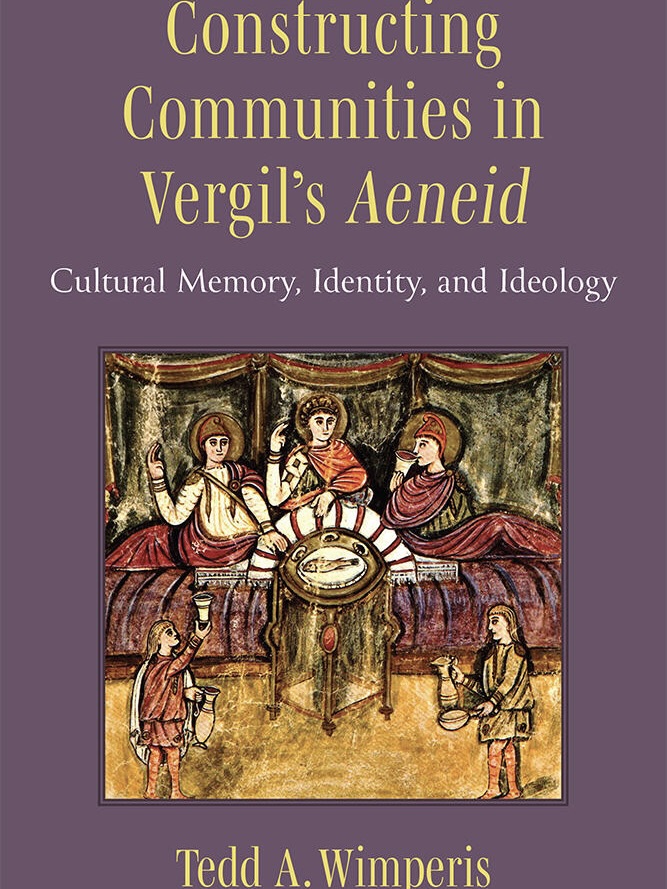Assistant Professor Tedd Wimperis celebrates the publication of his new book that focuses on how cultural identities are formed, expressed, and used in politics, inside the fictionalized world of the "Aeneid" and in the real-world Roman Empire. This book offers a chance for readers to think critically about how identities are formed through community and history across time periods.
Tedd Wimperis, an assistant professor of classical studies in the Department of World Languages and Cultures at Elon, recently had his book “Constructing Communities in Vergil’s ‘Aeneid’: Cultural Memory, Identity, and Ideology” published.

Wimperis began his journey writing this book during his time while completing his doctorate at the University of North Carolina at Chapel Hill in 2015, so it took a long journey to publication – almost as long as the journey of the hero Aeneas that the book is based on. As the title suggests, the book focuses on the ancient Roman epic poem “The Aeneid” written by the poet Vergil in the 20s BC, a time when Rome was undergoing major social and political changes as it became an empire. Vergil’s epic tells the mythical story of Aeneas, a Trojan hero who leads a community of refugees (the future people of Rome) to a new home in Italy.
Through this tale, “The Aeneid” is especially engaged in questions of national identity and how new identities are formed. These are also the kinds of questions being asked in Vergil’s own time about changes in Roman identity during that era. Wimperis’ book focuses on how cultural identities like this are formed, expressed and used in politics, inside the fictionalized world of “The Aeneid” and in the real-world Roman Empire.
Wimperis’ work at Elon and beyond ties in deeply to his book. Two of the courses he teaches at Elon are CLA3700: Race and Ethnicity in the Ancient Mediterranean and COR1100: Storytelling and Community. Each of these courses focuses on communities in the ancient and modern world and how they were able to share their traditions among themselves and other communities.
 To Wimperis, an important part of how communities and cultural identities are formed is through the stories that they tell about their past, in the form of historical events or mythology. Memorializing Roman history in statues, poems, and other artworks was a major way that ideas about Roman identity were passed on between generations. And, fascinatingly, “The Aeneid” shows the fictionalized communities within the poem memorializing their past and expressing their cultural identity in the same ways as Romans do. Wimperis explores this evidence and argues that it opens new ways of understanding the poem’s messages for its many audiences.
To Wimperis, an important part of how communities and cultural identities are formed is through the stories that they tell about their past, in the form of historical events or mythology. Memorializing Roman history in statues, poems, and other artworks was a major way that ideas about Roman identity were passed on between generations. And, fascinatingly, “The Aeneid” shows the fictionalized communities within the poem memorializing their past and expressing their cultural identity in the same ways as Romans do. Wimperis explores this evidence and argues that it opens new ways of understanding the poem’s messages for its many audiences.
“Constructing Communities in Vergil’s Aeneid: Cultural Memory, Identity, and Ideology” can be used as a valuable tool in learning about not only ancient cultures, but also inspiring critical thought about how identities are formed through community and history across time periods. This book offers a unique perspective in exploring Vergil’s “Aeneid” and cultural memories. It is available online and at the Elon University bookstore.


